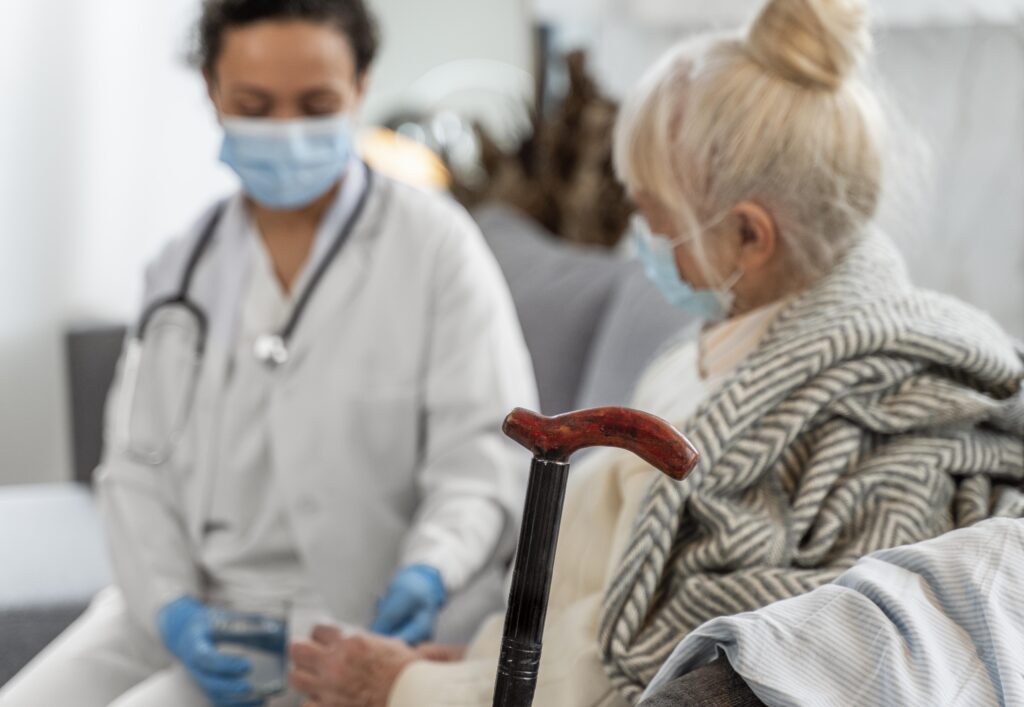Surgery Support For Seniors

Surgery can feel overwhelming, especially for older adults. Whether it’s a minor procedure or something more serious, having someone they trust by their side makes a big difference. If your loved one is getting ready for surgery, here are some simple, caring ways to support them.
Before Surgery
1. Go To Appointments With Them
If you can, join them at doctor visits before the surgery. Take notes, ask questions, and help them understand what to expect. With permission, use your phone to record important conversations with their doctor(s). Make sure their surgery team understands any special health concerns such as dementia, major allergies, or hearing loss.
2. Gather Their Health Info
Make a list of their medications, allergies, and medical history, and make sure their healthcare team has the most recent copy. Also, check that any important documents—like a power of attorney for healthcare or an advanced directive—are up to date and shared. It’s especially important for the hospital to have current copies of these.
3. Help Pack For The Hospital
Pack a small bag with the essentials they use every day, like glasses, toiletries, a toothbrush, dentures, hearing aids, a notepad and pen, or anything that brings them comfort. Consider packing comfortable clothes and footwear that will be easy for them to put on when it’s time to go home from the hospital. See our handy checklist of what to pack for an overnight hospital stay.
4. Set Up Their Home For Recovery
Before surgery, get their space ready. Clear walkways, remove tripping hazards, and make sure things they’ll need (like their phone, clock, water, meds, tissues, snacks, and comfy clothes) are easy to reach. Make sure extra blankets and pillows are nearby too. Our post, Home From The Hospital, outlines things you can do ahead of time to make life easier after surgery.
5. Plan Logistics
Figure out who will drive them home and stay with them after the procedure. If possible, take time off work or see if friends or family can lend a hand. If the patient has pets, make arrangements for someone else to look after them in the early days after surgery.
In Hospital
6. Stay in Touch With Their Care Team
Try to be there during important times—especially after surgery. If you can’t be there in person, call the hospital for updates. Ask questions and speak up if anything seems unclear. Our post, Your Rights As A Patient, explains people’s rights in hospital.
7. Check For Confusion
Older adults sometimes feel confused or disoriented after surgery. If they seem different—more forgetful or upset—let the care team know.
After Surgery
8. Support Their Healing
Help your loved one stay on top of medications, follow-up appointments, and meals. Make sure they drink enough water and rest. Little reminders can go a long way. Our popular free Medication Tracker can help manage their medications.
9. Watch For Warning Signs
Keep an eye out for signs of infection, unusual pain, or side effects from medication. If something doesn’t seem right, don’t wait—call the doctor. If it’s urgent, they seem to be deteriorating rapidly, or you notice sudden and significantly worsening confusion, call 911 or go to the nearest emergency room.
10. Encourage Small Wins
As they start to feel better, gently encourage the person to do small things independently. It boosts confidence and helps people recover more quickly. Unless told otherwise, getting up and moving around every hour or two can be important for healing.
11. Be There Emotionally
Surgery can be emotional. Some patients can also develop post-surgery sadness or depression. Check in not just on how they’re healing physically, but on how your loved one is feeling overall. Sometimes a listening ear is the best medicine. A daily phone or video call can help bolster people’s spirits.
Final Thoughts
Being there for a loved one during surgery isn’t just about helping with tasks—it’s about making sure they feel safe, supported, and cared for. With some planning, kindness, and patience, you can make the whole experience feel less stressful.
Disclaimer: This post is for informational purposes and does not constitute medical or health care advice. Always consult a qualified health professional with questions about medical or health-related issues.